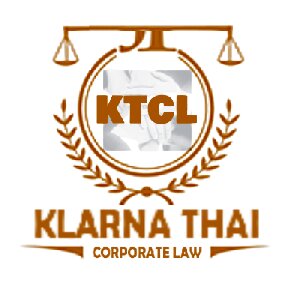Best Employment Benefits & Executive Compensation Lawyers in Watthana
Share your needs with us, get contacted by law firms.
Free. Takes 2 min.
List of the best lawyers in Watthana, Thailand
About Employment Benefits & Executive Compensation Law in Watthana, Thailand
Employment Benefits & Executive Compensation is a specialized area of employment law that addresses how companies compensate their employees beyond regular wages. This includes benefits such as health insurance, retirement plans, bonuses, stock options, and executive remuneration packages. In Watthana, Bangkok’s vibrant business district, these legal issues are especially relevant for both multinational employers and local businesses. Ensuring compliance with Thai labor laws and offering competitive packages while managing costs has become increasingly complex as the region’s business community grows.
Why You May Need a Lawyer
There are several situations where individuals and employers in Watthana may need legal help with Employment Benefits & Executive Compensation. These include:
- Negotiating executive compensation and severance agreements
- Understanding rights to bonuses, commissions, or profit-sharing
- Ensuring compliance with Thai labor laws when designing benefit schemes
- Resolving disputes over withheld or unpaid benefits
- Assessing the tax implications of various employment benefits
- Drafting or reviewing employment contracts or handbooks
- Advice on employee stock option plans (ESOPs) for startups or multinational companies
- Cross-border issues where foreign executives are involved
- Advising on termination or downsizing to ensure lawful treatment of senior staff
- Creating policies to retain key talent in a competitive market
Local Laws Overview
Thai labor law, including in Watthana, is governed by the Labor Protection Act B.E. 2541 (1998) and subsequent amendments. Key aspects relevant to employment benefits and executive compensation include:
- The law specifies minimum rights for all employees, such as annual leave, overtime, and social security contributions
- Employers are mandated to enroll employees in the Social Security Fund, which covers healthcare, sickness, and pensions
- Severance pay is required based on length of service, with higher amounts for longer tenures
- Bonuses and allowances are generally at the employer's discretion but may become enforceable if they are indicated as contractual or customary
- Employment contracts with executives can negotiate additional benefits, but they cannot waive statutory rights
- Executive compensation that includes company shares or options should comply with regulations from the Securities and Exchange Commission (SEC) and the Revenue Department for tax matters
- Foreign nationals working in executive roles may have special requirements for work permits and tax withholding
Frequently Asked Questions
What are the legally required employment benefits in Thailand?
Mandatory benefits include annual leave, public holidays, sick leave, maternity leave, severance pay, and employer contributions to the Social Security Fund.
Are employers in Watthana required to provide health insurance?
While private health insurance is not mandatory, employers must make contributions to the Social Security Fund, which provides basic health coverage for employees.
Can bonuses and profit-sharing be negotiated into an employment contract?
Yes, these can be negotiated and included in an employment contract. If made a contractual term or regular company policy, they may become legally enforceable.
How is executive compensation typically structured?
Executive compensation often includes base salary, performance bonuses, long-term incentives such as stock options, allowances, and sometimes severance arrangements.
What happens if an employer withholds agreed benefits?
If an employer unlawfully withholds benefits, employees can file a complaint with the Labor Inspector or Labor Court to seek enforcement and damages.
Are there any special issues for foreign executives?
Foreign executives require appropriate work permits and visas. Their compensation may be subject to different tax treatments depending on residency and double taxation treaties.
How is severance pay calculated?
Severance pay is based on an employee’s length of service, ranging from 30 days’ wages (for up to one year) to 400 days’ wages (for over 20 years of service).
Can employees waive their rights to statutory benefits?
No, employees cannot contract out of minimum statutory rights under Thai labor law, even by mutual agreement.
Who oversees employment benefit disputes in Watthana?
Disputes can be handled by the Department of Labor Protection and Welfare, or ultimately, by the Central Labor Court.
Are stock option plans common, and how are they regulated?
Stock option plans are increasingly used for executive compensation. They must comply with company law, SEC regulations, and tax rules, and are usually documented in writing.
Additional Resources
- Department of Labor Protection and Welfare: Handles complaints and provides information on labor rights
- Social Security Office: Provides details on mandatory health, pension, and welfare benefits
- Bangkok Labor Court: Deals with legal proceedings regarding employment disputes
- Revenue Department of Thailand: Offers guidance regarding tax implications for benefits and compensation
- Thai Securities and Exchange Commission (SEC): Regulates public company executive compensation and stock options
- Thai Bar Association: Directory of accredited labor law lawyers
Next Steps
If you need legal assistance regarding Employment Benefits & Executive Compensation in Watthana, consider the following steps:
- Gather any relevant documents, such as your employment contract, pay slips, and company policies
- Write down a summary of your situation, including any disputes or concerns
- Contact a qualified employment lawyer who specializes in executive compensation in Thailand
- Consult the Department of Labor Protection and Welfare if you have concerns about statutory rights
- Prepare questions you want to ask your lawyer about your entitlements and obligations
- Follow your lawyer’s guidance regarding negotiations, dispute resolution, or filing a claim
Acting promptly and seeking professional advice is key to protecting your rights and interests if you are dealing with employment benefits or executive compensation issues in Watthana, Thailand.
Lawzana helps you find the best lawyers and law firms in Watthana through a curated and pre-screened list of qualified legal professionals. Our platform offers rankings and detailed profiles of attorneys and law firms, allowing you to compare based on practice areas, including Employment Benefits & Executive Compensation, experience, and client feedback.
Each profile includes a description of the firm's areas of practice, client reviews, team members and partners, year of establishment, spoken languages, office locations, contact information, social media presence, and any published articles or resources. Most firms on our platform speak English and are experienced in both local and international legal matters.
Get a quote from top-rated law firms in Watthana, Thailand — quickly, securely, and without unnecessary hassle.
Disclaimer:
The information provided on this page is for general informational purposes only and does not constitute legal advice. While we strive to ensure the accuracy and relevance of the content, legal information may change over time, and interpretations of the law can vary. You should always consult with a qualified legal professional for advice specific to your situation.
We disclaim all liability for actions taken or not taken based on the content of this page. If you believe any information is incorrect or outdated, please contact us, and we will review and update it where appropriate.












